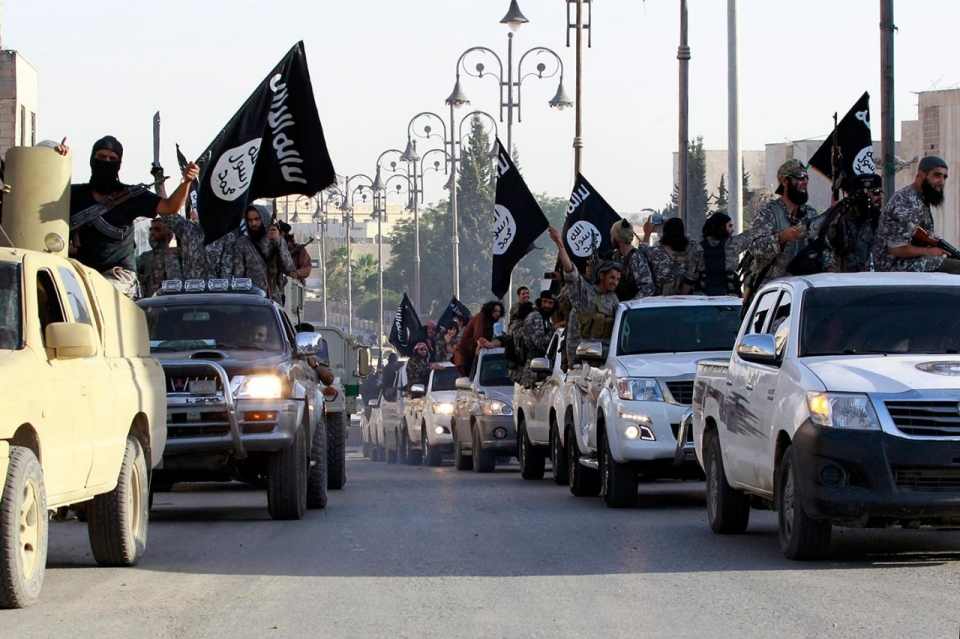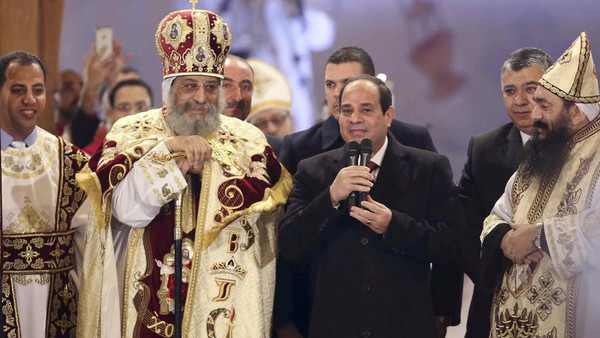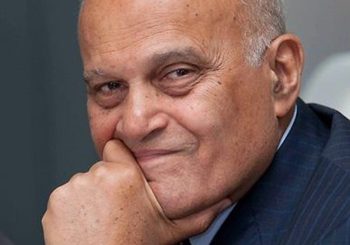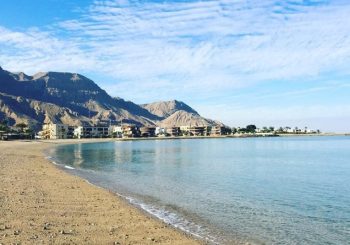The first week of 2015 marked the beginning of an ideological battle between two camps of Sunni Islam: the Reformists and the Fundamentalists. This battle will determine the future of the Middle East, Islamic Faith, and the survival of Muslim Communities around the world.
This may seem to be quite a grandiose statement, but the reality that surrounds us today quite portrays its legitimacy. We have six failed states (Libya, Yemen, Syria, Iraq, Somalia, Afghanistan) that together resulted in hundreds of thousands of deaths, and millions of refugees in one of history’s worst humanitarian crisis.
The new self-proclaimed Caliphate, ISIS, controls vast majority of land and resources in Syria and Iraq. It also launched attacks against Lebanon, Jordan and most recently Saudi Arabia. European nationalism has been on the rise over the past year, portraying Islam and Muslim immigrants as public enemy number one.
In the midst of all this chaos, two camps just played their drum rolls as they announced the beginning of a battle.
The first camp includes Egyptian President Abdelfattah Al Sisi who called for a “religious revolution” while delivering a speech to Al-Azhar’s leading figures and Imams two weeks ago. He urged them to reform Islamic doctrines, stating it is not possible for Muslims’ religious understanding to be the cause of anxiety and insecurity for the rest of the world.
On January 7th, he was the first Egyptian leader to attend Christmas mass at the Abbasiya Cathedral. The move, which was described by Pope Towadros II as a “pleasant surprise”, sparked a wave of joy and a long-lost feeling of security among Egypt’s Coptic minority. The President called for unity among Egyptians, saying “we will embrace each other, we will love each other, and we will build this country together”.
The second camp was recently involved in the barbaric murder of 12 journalists and policemen in Paris by three Jihadists. Soon after it happened, ISIS announced its responsibility for the attack and posted a picture of a masked Jihadist stating “we are everywhere”. If verified, this would be ISIS’ first attack on non-Muslim soil. In response, most of the world stood in solidarity with France, as protests were held across the globe and social media was flooded with #JeSuisCharlie. Of course it is absurd to blame the entire Muslim population for these attacks, as media mogul Rupert Murdoch did. If 1.6 billion people were in fact terrorists, the planet would have probably been bombed out of existence by now.
But then, as we have witnessed over the past few weeks, many in the Western world have begun to question the true nature of Islamic doctrines. The answer to this question can only be provided by Muslims, and a fierce battle between two camps will determine how Muslims coexist with the rest of the world.
The Fundamentalist of Raqqa

In Raqqa, the capital of the Islamic State, Abu Bakr Al Baghdadi is working on creating a functional state that can effectively rule the territories he has occupied. This proves to be a difficult task thus far. A recent report by the Financial Times shows how ISIS is struggling to maintain its economy and provide its citizens with basic commodities. His inability to govern effectively, coupled with the slowdown in territorial expansion and his defeat in various Iraqi regions, caused his fighters’ morale to fall and his population’s support for ISIS to dwindle.
Thus, the recent attack on Saudi Arabian borders and French cartoonists is an attempt to recover what was lost in recent months, and raise his fighters’ spirits. Despite these weaknesses, ISIS’ main strength still lies in its ideology. Its claim that it provides a clear definition of Islam and aims at restoring the Caliphate has successfully attracted thousands of fighters from across the world.
Al Baghdadi will continue to organize lone-wolf attacks in Western capitals as he considers this to be the best strategy for rallying fundamentalist support. His intention is to create a deep divide within Western communities, by pushing Muslims to be increasingly alienated within their societies.
He is also gambling on the success of European nationalist parties, which will further intensify the disparities between Muslims and the rest of European society. He understands very well that he can no longer pursue territorial expansion through conventional military operations. What he will try to achieve is to divide his targets and spread his ideology, thus fostering rebellion within his target communities. If the Islamophobic rhetoric pursues, we risk seeing attacks of a much larger scale in many of the World’s cities. It would be the West’s gravest mistake in all its counter-terrorism efforts to fall for this trap.
His strategy is however tied to his ability to govern locally. World leaders must enhance efforts to dry up his sources of funding and work on fully paralysing his economy. They also need to come together and foster unity and cohesion within their societies, blocking the way for extremism to dismantle their social cohesion.
The Reformist of Cairo
In Cairo, Abdelfattah Al Sisi has sent shockwaves in both the Egyptian and International community with his recent speech in Al-Azhar and his visit to the Coptic Church. He has also been working on various reforms and major projects to restart the economy, with his landmark project of digging a new Suez Canal in only a year’s time.
However, he faces serious challenges. The Egyptian economy still suffers from high deficiencies and his government has thus far been unable to resolve key issues such as healthcare and education. The country could again be facing political divisions with the upcoming parliamentary elections, where former Mubarak-regime figures are expected to gain a considerable amount of seats at the dismay of youth activists and Islamists.
Most of all, Al Sisi faces substantial difficulties in swaying many Egyptians towards his understanding of Islam. In the wake of the Charlie Hebdo massacre, many moderate Egyptians did condemn the attack and distanced it from the true definition of Islam. However, many Egyptians still hold strict Islamic views. For example, prominent Salafi preacher, Yasser Borhami, issued a fatwa that forbids Muslims from congratulating Christians on Christmas. And this is only the tip of the iceberg when it comes to what Islamists still preach. Therefore if the President were to convince the world of his view on Islam, he needs to succeed in convincing his own people.
What he needs to do is communicate his end vision to the population, which includes a combination of religious values that are coherent with development, progress and openness to the world. To compete with the ISIS rhetoric of recreating the Caliphate, he should draw reference from history – such as the golden era of Islamic civilisation – to support his project.
Indeed, his vision has started to materialise with his call for a religious revolution, coupled with the various economic reforms and mega-projects his government is currently pursuing. However, Egyptians – and not to mention the entire Muslim world – are yet to digest the ends of his vision.
By clearly portraying what form of society he seeks to create, he can gain much more support amongst Egyptians and Muslims – which is highly needed if he were to succeed. If you think of it as an orchestra, he needs to combine the separate objectives that he is pursuing so as to create a symphony that his spectators can understand and enjoy. If he fails to do so, it risks becoming a combination of non-matching melodies that make no sense to his audience; ultimately leading to them leave the show.
At this stage, Al Sisi may be offering the only effective means to fight radical Islamism. He is trying to combine military action to defeat terrorism in Sinai with economic and intellectual reform to dismantle Islamist ideology from its roots. What Western leaders need to do at this moment is to rally support for his endeavours and make sure he is provided with the necessary tools to achieve his target.







Comments (9)
egypt is a failed state too. A terrorist state just like Syria and Israel
Trying to portray Sisi as some kind of “reformist” is ridiculous considering that Copts still need presidential permission to build their own churches and are not allowed to proselytize freely, Jews are mocked and insulted and are “demons” who drink the blood of babies, atheists are imprisoned for blasphemy, and Shiites are Bahaiis are treated as if they don’t exist. Egypt’s Islam is not reformist in the slightest. In some respects, it’s almost as bad as ISIS.
In your mind islam is like that. But just in your mind
You seem to be very superficial in your understanding of the philosophy of faith of the majority of Egyptian muslims. You may need to read and talk more to real muslims, who don’t usually have a big beard and zebibah !!
I have Egyptian Muslims for parents, so I know what “real” Muslims are like. They hate the Muslim Brotherhood. They also don’t like atheists, gay people, and think that the “Jews” are out to take over the world.
Also, your fallacy is No True Scotsman https://yourlogicalfallacyis.com/no-true-scotsman